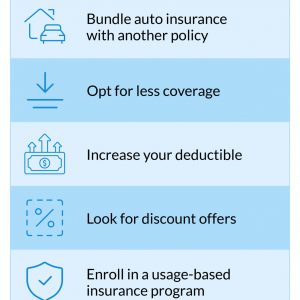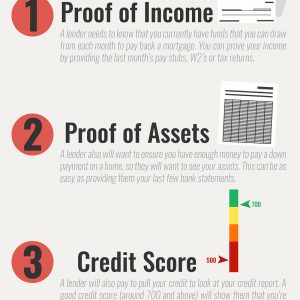-
Table of Contents
“Small Business Taxation: Get the Most Out of Your Business with Expert Advice!”
Introduction
Small business taxation is an important part of running a successful business. It is important to understand the various taxes that may apply to your business and how to properly file them. Knowing the different types of taxes, how to calculate them, and when to pay them can help you stay compliant and maximize your profits. This guide will provide an overview of small business taxation, including the different types of taxes, how to calculate them, and when to pay them.
How to Maximize Tax Benefits for Small Businesses
Small businesses are an important part of the economy, and the government offers tax benefits to help them succeed. Maximizing these benefits can help small businesses save money and increase their profits. Here are some tips for maximizing tax benefits for small businesses.
1. Take advantage of deductions. Small businesses can deduct a variety of expenses, including business-related travel, meals, and entertainment. It’s important to keep detailed records of all expenses to ensure that they are eligible for deductions.
2. Take advantage of tax credits. Tax credits are a great way to reduce the amount of taxes a business owes. There are a variety of tax credits available for small businesses, including credits for hiring employees, investing in research and development, and purchasing energy-efficient equipment.
3. Take advantage of retirement plans. Retirement plans are a great way to save for the future and reduce taxes. Small businesses can set up retirement plans for their employees, and the contributions are tax-deductible.
4. Take advantage of tax-free investments. Small businesses can invest in certain types of investments that are not subject to taxes. These include municipal bonds, U.S. Treasury bonds, and certain types of mutual funds.
5. Take advantage of tax-deferred investments. Tax-deferred investments allow businesses to defer taxes on their investments until they are withdrawn. This can be a great way to save for the future and reduce taxes.
By taking advantage of these tax benefits, small businesses can save money and increase their profits. It’s important to consult with a tax professional to ensure that all deductions and credits are taken advantage of.
Understanding the Different Types of Small Business Taxation
Small business taxation is a complex and ever-changing area of the law. Understanding the different types of taxes that may apply to your business is essential for ensuring compliance and avoiding costly penalties. This article will provide an overview of the various types of small business taxation.
The first type of small business taxation is income tax. This is the most common type of tax and is based on the profits of the business. Income tax is typically paid quarterly and is based on the total income of the business. The rate of income tax varies depending on the type of business and the amount of income earned.
The second type of small business taxation is payroll tax. This is a tax on the wages and salaries paid to employees. Payroll taxes are typically paid monthly and are based on the total wages and salaries paid to employees. The rate of payroll tax varies depending on the type of business and the amount of wages and salaries paid.
The third type of small business taxation is sales tax. This is a tax on the sale of goods and services. Sales tax is typically paid quarterly and is based on the total sales of the business. The rate of sales tax varies depending on the type of business and the amount of sales made.
The fourth type of small business taxation is property tax. This is a tax on the value of real estate owned by the business. Property tax is typically paid annually and is based on the assessed value of the property. The rate of property tax varies depending on the type of business and the assessed value of the property.
The fifth type of small business taxation is excise tax. This is a tax on certain types of goods and services. Excise taxes are typically paid quarterly and are based on the total sales of the goods and services. The rate of excise tax varies depending on the type of business and the amount of sales made.
Finally, the sixth type of small business taxation is franchise tax. This is a tax on the privilege of doing business in a particular state or locality. Franchise taxes are typically paid annually and are based on the total gross receipts of the business. The rate of franchise tax varies depending on the type of business and the amount of gross receipts.
Understanding the different types of small business taxation is essential for ensuring compliance and avoiding costly penalties. It is important to consult with a qualified tax professional to ensure that you are properly complying with all applicable tax laws.
Navigating the Complexities of Small Business Tax Planning
Small business tax planning can be a complex and daunting task. With the ever-changing tax laws, it is important to stay up to date on the latest regulations and to understand how they may affect your business. To help navigate the complexities of small business tax planning, here are some tips to consider.
First, it is important to understand the different types of taxes that may apply to your business. Depending on the type of business you operate, you may be subject to income taxes, payroll taxes, self-employment taxes, and other taxes. Knowing which taxes apply to your business will help you plan accordingly.
Second, it is important to understand the different deductions and credits that may be available to you. Many small businesses are eligible for deductions and credits that can help reduce their tax liability. It is important to research the deductions and credits that may be available to you and to take advantage of them.
Third, it is important to understand the different tax filing requirements for your business. Depending on the type of business you operate, you may be required to file quarterly or annual tax returns. It is important to understand the filing requirements and to ensure that you are filing your taxes on time.
Finally, it is important to understand the different tax planning strategies that may be available to you. There are a variety of strategies that can help you reduce your tax liability and maximize your profits. It is important to research the different strategies and to determine which ones may be most beneficial for your business.
By understanding the different types of taxes, deductions, credits, filing requirements, and tax planning strategies that may apply to your business, you can better navigate the complexities of small business tax planning. With the right knowledge and planning, you can ensure that your business is compliant with the latest tax regulations and that you are taking advantage of all available deductions and credits.
Exploring the Benefits of Tax Credits for Small Businesses
Small businesses are the backbone of the American economy, providing jobs and services to millions of people across the country. As such, the government has implemented a number of tax credits to help small businesses succeed. These tax credits can provide significant financial benefits to small businesses, allowing them to reinvest in their operations and grow.
The most common tax credit for small businesses is the Small Business Health Care Tax Credit. This credit is available to businesses with fewer than 25 full-time equivalent employees who pay at least half of their employees’ health insurance premiums. The credit is worth up to 50% of the premiums paid by the employer, and can be claimed for up to two consecutive tax years.
Another popular tax credit for small businesses is the Research and Development Tax Credit. This credit is available to businesses that invest in research and development activities. The credit is worth up to 20% of the amount spent on research and development activities, and can be claimed for up to three consecutive tax years.
The Work Opportunity Tax Credit is another tax credit available to small businesses. This credit is available to businesses that hire individuals from certain target groups, such as veterans, ex-felons, and individuals receiving public assistance. The credit is worth up to $2,400 per eligible employee, and can be claimed for up to five consecutive tax years.
Finally, the Energy-Efficient Commercial Building Tax Deduction is available to businesses that make energy-efficient improvements to their buildings. The deduction is worth up to $1.80 per square foot of the building, and can be claimed for up to three consecutive tax years.
These are just a few of the tax credits available to small businesses. By taking advantage of these credits, businesses can save money and reinvest in their operations, helping them to grow and succeed.
Conclusion
Small business taxation is a complex and ever-changing area of the law. It is important for small business owners to stay up to date on the latest tax laws and regulations to ensure they are in compliance and taking advantage of all available deductions and credits. With the right guidance and advice, small business owners can ensure they are paying the correct amount of taxes and taking advantage of all available deductions and credits.





